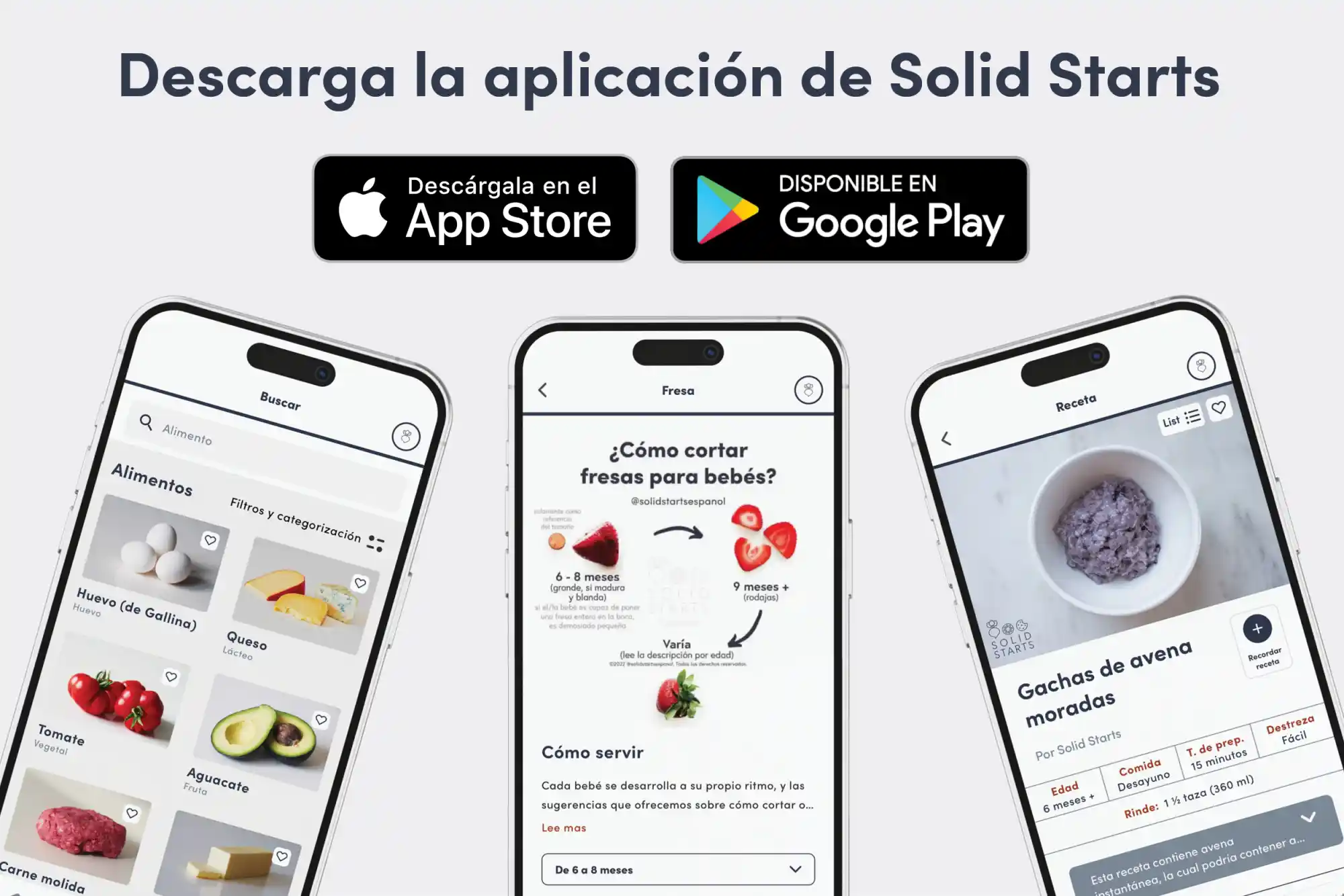Acceda a la base de datos First Foods® en Solid Starts App.
Leer másCloves
Hierba/Especia
Sugerencia de edades
6 meses
Alto contenido de hierro
No
Alérgeno común
No

Warning
Do not offer clove oils to babies or young children. While sometimes used to ease teething pains, there have been near fatal reports of excess clove oil ingestion.
When can babies have cloves?
Cloves may be introduced as soon as baby is ready to start solids, which is generally around 6 months of age. If cooking with whole cloves, make sure to remove them before serving the food to baby to reduce choking risk. Note that clove oil should be avoided for babies and young children.
Cloves are the dried flower buds of an evergreen tree that originated on the islands of Southeast Asia, where the spice has been used in food and medicine since ancient times. Colonization, migration, and trade introduced clove far beyond its native region, and today the spice is a staple seasoning around the globe. Bittersweet and pungent, clove adds warmth and brightness to sweet and savory cooking in its native region and far beyond, from pho and lapis legit cake in Southeast Asia, to mole and pumpkin pie in the Americas.
How do you serve cloves to babies?
Cada bebé se desarrolla a su propio ritmo, y las sugerencias que ofrecemos sobre cómo cortar o preparar determinados alimentos son generalizaciones para una amplia audiencia.
6 months old +:
Sprinkle a tiny amount of ground cloves on age-appropriate foods like strips of tofu, congee, or cooked vegetables, or mix a tiny amount into batter to make breads, muffins, or pancakes. When adding finely ground cloves directly to baby’s portion, start small: Cloves have a powerful flavor, and using too much can overpower other ingredients. You can also use whole cloves to flavor marinades, sauces, and stews to share with baby—just make sure to remove the cloves before serving.
12 months old +:
Cook with cloves as desired in the child’s meals. Use ground clove in combination with other ingredients to create rich sauces, season batters and baked goods, and much more. If making beverages flavored with cloves such as tea or wassail, you can share small amounts in an open cup with your child as long as the drink is free of alcohol. Just make sure that, if whole cloves are used in a dish or drink, that they are all removed before serving.
Are cloves a choking hazard for babies?
Yes. Whole cloves are small, round, and very firm, qualities that increase the risk of choking. To reduce the risk, prepare and serve cloves in an age-appropriate way as described in the How to Serve section. As always, make sure you create a safe eating environment and stay within an arm’s reach of baby during meals.
Learn the signs of choking and gagging and more about choking first aid in our free guides, Infant Rescue and Toddler Rescue.
Are cloves a common allergen?
No. Allergies to ingestion of cloves are rare, but delayed contact allergy to clove has been reported. Note that certain spice blends that feature cloves may contain common food allergens, so make sure to read labels thoroughly.
Spices can cause reactions similar to allergic symptoms. For example, inhaling a puff of powdered clove can irritate the nasal passageways and trigger sneezing and coughing, but this response may not be an allergic reaction.
Foods with spices like cloves may cause a harmless rash around the mouth while baby eats or may cause or worsen diaper rash. To help prevent contact rashes, apply a thin layer of barrier ointment (such as pure petroleum jelly or a plant-based oil/wax balm) to baby’s face and bottom before mealtime.
Individuals who have a known contact allergy to Balsam of Peru or allspice may also be sensitive to prolonged or recurrent skin contact with cloves or clove oil. This type of allergy generally does not require strict avoidance of clove in the diet.
As you would when introducing any new food, start by offering a small quantity for the first few servings. If there is no adverse reaction, gradually increase the quantity over future meals.
Are cloves safe for babies?
Yes. Cloves are generally recognized as safe in amounts typically used in cooking. Do not offer clove essential oil or clove oil to babies and young children. While sometimes used to ease teething pains, there have been many near fatal reports of excess clove oil ingestion.
Are cloves healthy for babies?
Yes. Cloves offer small amounts of various vitamins, minerals, and fiber, as well as plant compounds like eugenol that may offer anti-inflammatory, antimicrobial, antioxidant, and anticancer benefits.
Do not offer clove oils to babies or young children. While sometimes used to ease teething pains, there have been many near fatal reports of excess clove oil ingestion.
¿Cómo puedo calmar mis nervios al comenzar la alimentación complementaria?
Empápate del tema y practica las maniobras de rescate. Los padres y cuidadores que ven los videos de ahogamiento y rescate infantil en nuestro Pase completo de primeros alimentos a menudo comparten que se sienten mucho más seguros.
¿Es necesario tener una trona/silla alta?
Si bien una silla alta puede ayudar a crear un entorno seguro para comer, existen formas alternativas para que el/la bebé coma de forma segura, así como sostenerlo/a en tu regazo o sentarse juntos en el suelo. Para obtener más información, consulta nuestra Guía detallada de sillas altas para bebés.
Nuestro equipo
Escrito por
Consejos de expertos directo a tu bandeja de entrada
¡Suscríbete y recibe correos semanales con recetas, consejos y más!
Copyright © 2026 • Solid Starts Inc






